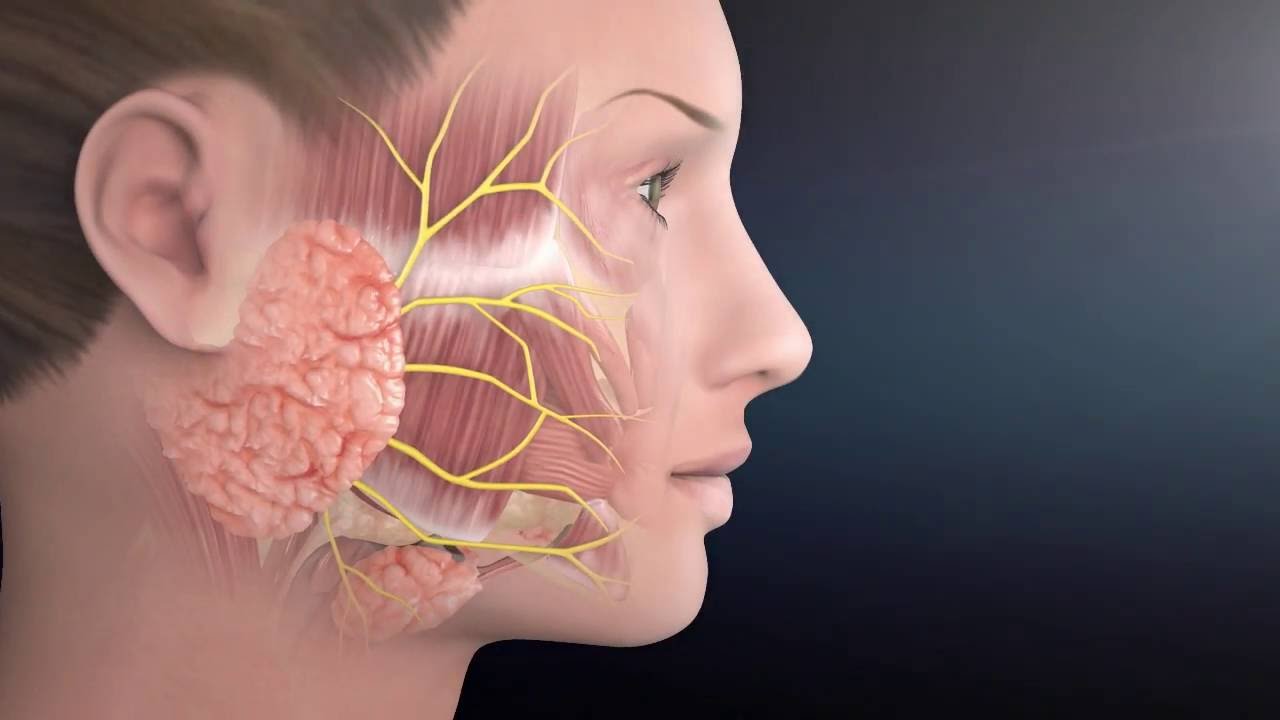Salivary Gland Tumor Removal in Russian Federation
Search and Compare the Best Clinics and Doctors at the Lowest Prices for Salivary Gland Tumor Removal in Russian Federation

Find the best clinics for Salivary Gland Tumor Removal in Russian Federation
No clinics available
Germany offers the best prices Worldwide
Price: $ 8,031

- Home
- Russian Federation
WHY US?
At Medijump, we're making medical easy. You can search, compare, discuss, and book your medical all in one place. We open the door to the best medical providers worldwide, saving you time and energy along the way, and it's all for FREE, no hidden fees, and no price markups guaranteed. So what are you waiting for?

Free

Best Price

Widest Selection

Risk-Free
What you need to know about Salivary Gland Tumor Removal in Russian Federation

Salivary gland tumor is a rare type of tumor that starts in any of the salivary glands in your mouth, which can be benign (noncancerous) or malignant (cancerous). The salivary glands produce saliva to help you swallow, protect your teeth from bacteria, lubricate your mouth, and help the digestion of food. There are three major pairs of salivary glands: parotid, submandibular, and sublingual. Salivary gland tumors usually occur in the parotid gland and treatment often involves removal of the tumor.
What does a Salivary Gland Tumor Removal Procedure Involve?
You are given a general anesthetic so you are unconscious during the surgery. If the tumor is located in the parotid gland, your surgeon makes an incision that extends from the front of your ear to your neck to access the gland, then they carefully remove as much of the tumor as possible without harming your facial nerve. If the tumor has spread into deeper tissue, your surgeon may remove the entire gland.
How Long Should I Stay in Russian Federation for a Salivary Gland Tumor Removal Procedure?
Most people are required to stay in the hospital for one to four days following the surgery. However, you should not leave Russian Federation immediately after you are discharged from the hospital since you need to allow your body time to heal and attend follow-up checkups. The recommended length of stay is about 10 to 14 days.
What's the Recovery Time for Salivary Gland Tumor Removal Procedures in Russian Federation?
The total recovery time until you do not feel any numbness and you are allowed to go back to your full routine can take as long as six months. However, you should be able to drive and do some light activities within 1-2 weeks. If your job is not too physical and does not involve heavy lifting, you may also be able to return to work in about two weeks.
What sort of Aftercare is Required for Salivary Gland Tumor Removal Procedures in Russian Federation?
Your doctor will give you a set of instructions that you need to follow. It is really important for you to change your lifestyle by having regular exercise (aerobic exercise, such as walking, swimming, or biking) and following a healthy, well-balanced diet. You may also need to attend follow-up appointments, particularly if your tumor is cancerous, to make sure that the tumor has not returned and there are no new growths.
What's the Success Rate of Salivary Gland Tumor Removal Procedures in Russian Federation?
Saliva gland tumor removal is a complicated surgery, but it is generally safe and effective if done by a skilled professional. All surgery carries some side effects and risks, and salivary gland tumor removal is no exception. The side effects and risks include bleeding, infection, blood clots, damaged nerve, lose control of facial muscles, Frey syndrome, change in appearance, and problems with the anesthesia.
Are there Alternatives to Salivary Gland Tumor Removal Procedures in Russian Federation?
If your tumor is cancerous, your doctor may recommend you to undergo chemotherapy or radiation therapy to kill cancer cells. Make sure to talk to your doctor about the best treatment option for your specific case.
What Should You Expect Before and After the Procedure
Before salivary gland tumor removal, you may experience numbness in a part of your face, persistent pain, difficulty swallowing, swelling near your jaw, muscle weakness on one side of your face, and trouble opening your mouth widely. Salivary gland tumors can also spread to other organs and become life-threatening. After the removal, all of your symptoms can be relieved and the risk of the tumor spreading to other organs is reduced.
Whilst the information presented here has been accurately sourced and verified by a medical professional for its accuracy, it is still advised to consult with your doctor before pursuing a medical treatment at one of the listed medical providers
No Time?
Tell us what you're looking for and we'll reachout to the top clinics all at once
Enquire Now

Popular Procedures in Russian Federation
Prices Start From $111

Prices Start From $404

Prices Start From $308

Recommended Medical Centers in Russian Federation for procedures similar to Salivary Gland Tumor Removal

- Interpreter services
- Translation service
- Religious facilities
- Medical records transfer
- Medical travel insurance
- Health insurance coordination
- TV in the room
- Safe in the room
- Phone in the room
- Private rooms for patients available

- Interpreter services
- Translation service
- Religious facilities
- Medical records transfer
- Medical travel insurance
- Health insurance coordination
- TV in the room
- Safe in the room
- Phone in the room
- Private rooms for patients available

- Interpreter services
- Translation service
- Religious facilities
- Medical records transfer
- Medical travel insurance
- Health insurance coordination
- TV in the room
- Safe in the room
- Phone in the room
- Private rooms for patients available
Salivary Gland Tumor Removal in and around Russian Federation
The Russian Federation, or Russia, is a transcontinental country that stretches over a vast expanse of Eastern Europe and northern Asia. Once a mighty tsarist empire and a communist superpower, this massive country is enigmatic, intimidating, and fascinating all at the same time. It has everything, from the idyllic countryside and historic cities to scenic beauty and artistic riches. Today, Russia is a famous medical tourism destination. The number of medical tourists seeking high-quality healthcare continues to double each year. These medical tourists mainly come from Asian countries, such as China, South Korea, India, Japan, and Vietnam. They come to receive a wide range of medical care, with IVF treatment, dental services, cosmetic surgery, and cardiovascular surgery being the most sought-after.
Popular Parts of the Russian Federation
Most visitors are drawn to the western part of the country, particularly to Moscow and St. Petersburg. Moscow, the capital of Russia, is popular for its show-stopping architecture, rich history, amazing culture, and great food. Some of the most famous landmarks are the St. Basil’s Cathedral, the Red Square and the Lenin Mausoleum, the Moscow Kremlin, The Tretiakov Gallery, and the Wooden Palace of Tsar Alexei Mikhailovich. St. Petersburg, Russia’s second city and imperial capital, is one of the most gracious cities in Europe. People come to this city to visit the State Hermitage Museum, the Grand Palace, and Catherine Park.
Weather and Climate in the Russian Federation
There are four seasons in Russia. December to February are the winter months, which is cold and snowy, with short days and long nights. The average temperature during this season is around -10°C to 3°C. Spring comes in March, bringing warmer, but rainy weather. Summer, from June to August, is hot and humid, with an average temperature of around 12°C to 26°C. The weather can be quite unpredictable in the summer, and downpours can come unexpectedly. Autumn is from September to October and is warm and pleasant.
Getting around in the Russian Federation
The largest airport in Russia that receive the most international flights is Sheremetyevo Alexander S. Pushkin International Airport in Moscow. It serves both domestic and international flights to many cities around the globe. Since Russia is the world’s largest territory, internal flights are the fastest and most convenient way to get around. Trains have an extensive network, and, with many comfortable overnight services, is considered as the best way to get around. Buses are a great option to travel to the areas not covered by the train. Some really remote destinations may only be reached by private cars or taxis. Taxis are relatively inexpensive and widely available.
Tourist Visas in the Russian Federation
Nationals of 62 nations, including Brazil, South Africa, South Korea, North Macedonia, and Hong Kong, can visit and stay in Russia without a visa for a period of 14 to 90 days. Citizens of other countries not listed in the visa exemption agreement need a visa to enter. Electronic visas are available for citizens of several countries, including all EU countries, China, and India.
Additional Information
- Local Currency: Russian uses the Russian ruble (RUB) as its official currency. 1 USD is equivalent to 77.16 RUB.
- Money & Payments: The easiest way to get rubles is by using ATMs, which is available throughout the country. Major credit and debit cards, including MasterCard and Visa, are accepted in larger hotels and restaurants, but cash is more reliable. Some places may offer to accept euros and dollars, but this is illegal. Tipping is expected, around 10% to 15% of the bill. Always tip in cash and give it directly to the waiter.
- Local Language: There are over 100 minority languages spoken in Russia, but the official and most widely spoken language is Russian. English is spoken to some degree, especially in major cities.
- Local Culture and Religion: Most of Russia’s population adheres to Christianity, with the Russian Orthodox Church being the biggest Christian denomination. There are also small groups of Muslims, Buddhists, and Jewish.
- Public holidays: New Year’s Day, Orthodox Christmas Day, Defender of the Fatherland Day, Victory Day, Russia Day, and Unity Day are some of the most important public holidays in Russia.
Popular Searches
- Plastic Surgery in Thailand
- Dental Implants in Thailand
- Hair Transplant in Thailand
- Breast Augmentation Thailand
- Gastric Sleeve in Thailand
- Gender Reassignment Surgery in Thailand
- Laser Hair Removal in Bangkok
- Botox in Bangkok
- Dermatology in Bangkok
- Breast Augmentation in Bangkok
- Coolsculpting in Bangkok
- Veneers in Turkey
- Hair Transplant in Turkey
- Rhinoplasty in Turkey
- Stem Cell Therapy in Mexico
- Rhinoplasty in Mexico
- Liposuction in Mexico
- Coolsculpting in Tijuana
- Rhinoplasty in Korea
- Scar Removal in Korea
- Gastric Sleeve in Turkey
- Bone Marrow Transplant in India
- Invisalign in Malaysia
- Plastic Surgery in the Dominican Republic
- Tummy Tuck in the Dominican Republic
- Plastic and Cosmetic Surgery in Poland
- Rhinoplasty in Poland
- Hair Implant in Poland
- Dental Implants in Poland
- IVF in Turkey